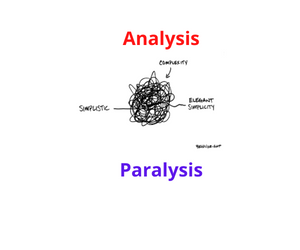No Italian cars in this week’s post, rather the first in a series looking at how often decisions made in big places are more the product of whim rather than objective and based on extensive analysis. Back in the day, in secondary school, or high school for the Americans, we learnt about linear equations. You may have done one of those exercises to figure out where you figure out where to build a factory; the idea being to build it close to the customers or close to the resources you were going to use. This involved sliding a ruler over some lines on a graph paper to find the right answer. Very methodical. In fact, the correct “real world” answer would have been “the factory should be close to the CEO’s house,” but at 13 or so we were not yet precocious enough to know that or to suggest it.
My first experience of the real world came at Salomon Brother in London; they had moved out of the City proper, long ahead of Canary Wharf, and built a massive glass edifice on top of Victoria Station. Why? Nobody knows for sure, but I’ll venture a bet that it was closely related to the fact that many of the MD’s had houses in Eton Square, only a stone’s throw away. A couple of years later, at Goldman Sachs in Zurich, I was one of a team of seven asked to evaluate potential systems for the new private banking platform we were about to build. This involved lots of days on the road, including a memorable, if not comfortable, couple of days sitting in a very cold computer room in a Zurich suburb, freezing my proverbials off in service of the Goldman cause. So much for glamour in banking.
Fate determined that we would look at two products. One installed and running in a couple of places, the other in development mode at one bank. The due diligence involved entering lots of trades and following the results thru the system, asking questions about what we expected to see. Now if only I’d bought as many Apple and IBM shares as I put orders into those things, I would be sitting on a beach today. One of the two offerings, the one not yet live, was really quite complex, or as our tech friends would call it, “normalised”. This meant lots of things could and had to be set up; another technical term for this is “parameterised”. Pretty soon, we realised why the only customer this platform had was not yet in production. It was the work of PhD thesis to set this thing up.
Whilst the evaluation team was traveling, testing and forming an opinion, our General Manager, John, was busy getting to know the CEO of the company with this new platform, an Englishman named Gordon. As the evaluation drew to a close, all seven of us in the team had come to the same conclusion; we liked the product that was already installed and running elsewhere. The new one, without a live client, was to our mind, just too difficult to configure and operate. So that was a 7:0 verdict. We ended up, all of us, in a room with the General Manager. We gave him our recommendation. He looked at us and said: “Well, I have already told Roy (Zurckerberg, the Chairman of Goldman Sachs’ Swiss Bank and a partner) that we are going with the new system.” Stunned, we asked what was the basis for the decision. “Well, I like Gordon,” he said, referring to the CEO of the company. Well we were on the record at least, with our recommendation enshrined for the praise of posterity in written memos.
Just after this fateful decision was made, a bank right across the square from us opted to take the system we had wanted to take. They started after us and were in production faster. At Goldman, the “I like Gordon” decision turned into a massive exercise, costing far more than budgeted and taking way longer. All because one bloke liked Gordon.
Lessons Learned: In big places, decisions are often not linear. Sadly, a lot of time, energy and money is often wasted doing all the analysis. Being on the record turned out to be as much use as a chocolate teapot; we were all dragged into the quagmire of having to sort the mess out. As Ossie Gruebel once remarked at a Credit Suisse town hall; you should stay true to yourself, but that can be too noble an aim if you get shot in the process.
In this case, the whimsical decision was a costly one. Nobody did anything criminally wrong, even if the decision was at least grossly negligent. In your career, you will encounter these types of things; if there is nothing either criminal or against the firm’s own regulations, then quite likely the best you can do is make sure your view is on the record. There is a line not to cross; covering up illegal or wrong acts is certainly a bad idea and a line that was crossed in recent history in cases like Enron, or even, it would seem, round at the august BBC regarding revelations about one of its presenters.
Tolerate a firm making bad decisions and stay there without resigning; yes. Tolerate illegal activities or ones that are against the firm’s rules and not resign if you are ignored when you raise the issue; no.
A personal request:Comments and feedback from regular readers are very welcome. Thank you for each and every one of them. If you find this Blog useful, please subscribe. There is an E-Mail tool and an RSS link on the right hand side of the main Blog page. If you like it enough to share, please share this with a friend or two and ask them to subscribe too. If I am wide of the mark and not offering anything of use, please comment or contact me directly via E-Mail
.
Share on:



